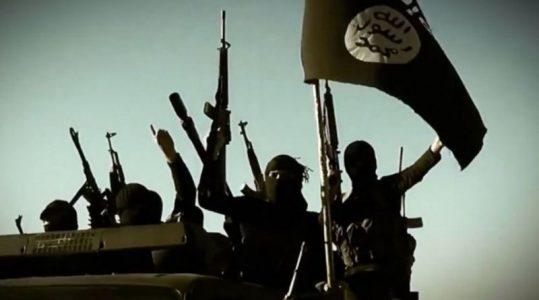
Islamic State terrorist group will rise again before it falls
President Donald Trump’s recent suggestion that the Islamic State (IS) has been “defeated” was broadly met with disbelief, even by US allies.
It came at a time when IS was engaging in terrorist attacks against the Syrian Democratic Forces (SDF), anti-IS coalition forces and other armed groups in Iraq and Syria, as well as attacks against civilians in Egypt and continued activities in Libya.
Far from being obliterated, IS has transformed into an insurgency. Its current opportunistic mode of operation means that it will take advantage of any openings to prove its viability – though this does not mean a return to the physical “caliphate” anytime soon. As things stand in Egypt and Syria, IS is likely to witness a relative rise in the near future before any fall can occur.
On 6 January, CBS broadcast an interview with Egyptian President Abdel Fattah al-Sisi, despite the Egyptian government attempting to prevent it from airing.
Egyptian authorities did not publicly comment on the matter, but observers have speculated that the state’s opposition was partly due to the interviewer asking about Egypt’s crackdown on protestors in Cairo in 2013, and partly because of Sisi’s unprecedented announcement about close cooperation with Israel in combatting IS in Sinai.
Sinai became the new locus of IS activity after the group’s loss of territory in Iraq and Syria. Some Egyptian pro-government news sites, as well as Russian news sites, accused Turkey of facilitating the transfer of IS fighters from Syria into Sinai.
Some Turkish news sites, on the other hand, spoke of US facilitation for the transfer of IS fighters from Raqqa into Sinai after a deal brokered with the SDF.
There is no evidence to prove either theory. Sinai did become an active front in addition to Syria and Iraq, but this was met with increasing Israeli intervention to try to block this growth.
Reports of Israeli help for Egyptian security forces in Sinai have been circulating in the Israeli and international media for at least two years, but Israeli military support was meant to be largely covert, especially after IS posted a video in which one of its fighters in Sinai displayed to the camera remnants of missiles with Hebrew writing on them.
Sisi’s admission is likely to be paraded by IS as proof of its credibility, and used to rally more support in Sinai and elsewhere. Now that the admission has been made public, it will also be used by the Egyptian government to send a message to IS that the group is facing a mighty force.
With potential escalation looming on both sides, the unfolding scenario is far from the end of the fight against IS in the Sinai, which both the Egyptian government and the Israelis had hinted at last year.
Source: MEM





